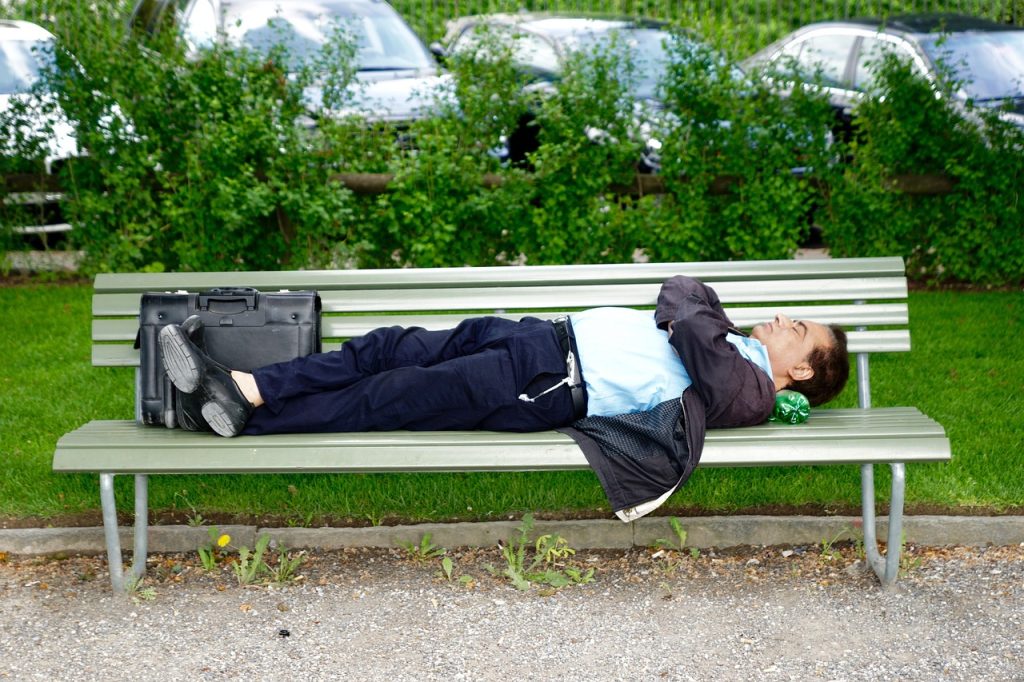While everyone focuses on getting enough sleep, consistently needing much more than 8-9 hours might signal underlying issues that need attention. Quality matters more than quantity when it comes to feeling rested and energized.
Sleep is crucial for health, but if you’re regularly sleeping 10+ hours and still feeling tired, something else might be going on. Let’s explore when excessive sleep could indicate problems worth addressing.
When Long Sleep Becomes Concerning
Most adults function best on 7-9 hours of sleep, but individual needs vary. However, consistently needing much more than this range while still feeling tired could indicate underlying issues.
If you’re sleeping 10+ hours regularly and still experiencing fatigue, brain fog, or low energy, the problem likely isn’t that you need even more sleep—it might be that your sleep quality is poor or there’s an underlying health condition.
Some research has found correlations between very long sleep duration and health issues, but this is often because people with certain medical conditions, sleep disorders, or depression require more sleep as their bodies attempt to compensate for poor quality rest.
Quality vs. Quantity
Sleep efficiency—the percentage of time in bed actually spent in restorative sleep—matters more than total hours. Seven hours of high-quality, uninterrupted sleep often leaves you feeling more refreshed than ten hours of fragmented, poor-quality sleep.
If you’re sleeping long hours but waking up frequently, spending lots of time awake in bed, or not reaching deep sleep phases, you might be trying to compensate with quantity what you’re missing in quality.
Signs of poor sleep quality include frequent night wakings, difficulty falling asleep, waking up gasping or choking, loud snoring, and feeling unrefreshed despite long sleep duration.
Potential Underlying Issues
Consistently excessive sleep needs might indicate:
Sleep disorders: Sleep apnea, restless leg syndrome, or other conditions can fragment sleep, requiring longer time in bed to get adequate rest.
Depression: Depression often increases sleep needs while reducing sleep quality. Treating the depression typically normalizes sleep patterns.
Medical conditions: Thyroid disorders, chronic fatigue syndrome, or other health issues can increase sleep requirements.
Medications: Some medications increase drowsiness or affect sleep architecture, requiring longer recovery sleep.
Sleep debt: If you’ve been chronically sleep-deprived, you might temporarily need extra sleep while your body recovers.
The Productivity Factor
From a practical standpoint, spending 10+ hours in bed daily leaves less time for work, relationships, exercise, and activities that contribute to overall well-being.
If excessive sleep is reducing time available for social connections, physical activity, or meaningful pursuits, it might be worth investigating whether you can achieve better rest in fewer hours.
Some people get stuck in cycles where poor daytime habits (lack of sunlight, exercise, or social interaction) lead to poor sleep quality, which then requires longer sleep duration, which further reduces time for beneficial daytime activities.
When to Seek Help
Consider consulting a healthcare provider if you:
- Regularly sleep 10+ hours but still feel tired
- Experience loud snoring or breathing interruptions
- Have sudden changes in sleep needs
- Feel depressed or have mood changes
- Experience excessive daytime sleepiness despite long nighttime sleep
A sleep study or medical evaluation can identify treatable conditions that might be affecting your sleep quality and duration needs.
Optimizing Sleep Efficiency
If you want to see if you can get adequate rest in fewer hours:
Focus on sleep hygiene: Consistent bedtime, dark room, cool temperature, no screens before bed.
Get morning sunlight: Natural light exposure helps regulate your circadian rhythm and can improve sleep quality.
Exercise regularly: Physical activity improves sleep quality, though avoid intense exercise close to bedtime.
Watch your timing: Limit caffeine after 2 PM and avoid large meals close to bedtime.
Create a wind-down routine: Consistent pre-sleep activities signal your body to prepare for rest.
Individual Variation Matters
Remember that sleep needs vary significantly between individuals. Some people naturally function best on 9+ hours of sleep, and that’s perfectly normal if they feel rested and energetic.
The concern arises when someone needs excessive sleep but still feels tired, or when long sleep duration is interfering with other aspects of life and well-being.
Pay attention to how different sleep durations affect your energy, mood, and cognitive function to find what works best for your individual biology and circumstances.
The Bottom Line
Sleep is about restoration and recovery, not just time spent unconscious. If you’re consistently sleeping much longer than average but still feeling tired, it’s worth investigating whether there are underlying issues affecting your sleep quality.
The goal is efficient, restorative sleep that leaves you feeling energized and ready for your day—whether that takes 7 hours or 9 hours depends on your individual needs and circumstances.
If you’re concerned about your sleep patterns, consider keeping a sleep diary and consulting with a healthcare provider who can help identify any underlying issues and optimize your sleep for better quality of life.
